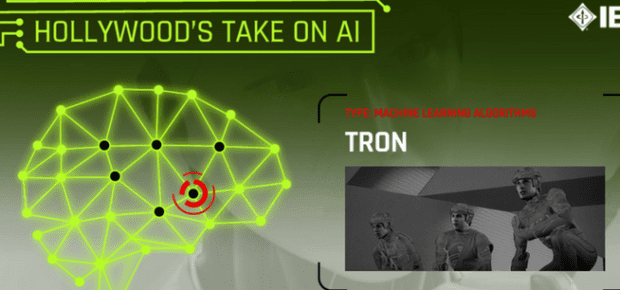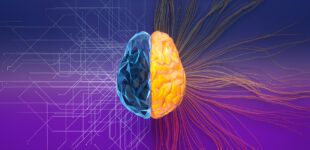November 7, 2016
Over the past 65 years, Artificial Intelligence has been heavily documented in films (check out our interactive experience), and we wondered just how real those depictions were, and whether they will affect us in the real word. For answers to our questions, we asked IEEE Member George K. Thiruvathukal, also a member of the IEEE Computer Society and Professor of Computer Science at Loyola University, Chicago, about the future of AI and how it has been portrayed in film.
IEEE Transmitter: Do you believe the portrayal of AI in movies is realistic and illustrates where we are or could be in the future? What’s your favorite AI film?
Thiruvathukal: Yes and no to part one of this question. When I think of AI, I think some of the pioneering efforts happened in the TV series Star Trek, and the movie Terminator. Both feature AI with androids that were seemingly “all too human” at the time. I’d say that both of these are among my favorites. I don’t get too much time to watch any of the more recent movies but am convinced that what we say in films/TV as I described is realistic and entirely possible even within most of our lifetimes. The question is only whether they will be human or not quite human.
IEEE Transmitter: How are advances in AI going to help us? How can they harm us?
Thiruvathukal: The present state of AI is to augment human intelligence and especially help us with recall and basic inferencing from large data sets. When we talk about AI, we also need to be talking about the state of related areas, such as machine learning, neuroscience, and robotics. It is this combination of understanding the human brain and being able to mimic other human aspects that will allow AI to be more helpful to us. For example, we presently can use robots to do many tasks that would be otherwise hazardous to humans (e.g. submersibles, drones, etc.)
Of course, any technology can be harmful to us. Terminator is interesting because it deals with AI and its dangers. While some ideas are rather far-fetched (AI returning from the future), it is clear that the future could be fraught with great societal challenges, especially if robots end up in the wrong hands. Even in the right hands, we must ensure that ethics are considered. For example, in warfare, we’ve seen drones of increasing sophistication used to get the “bad guys.” But what will happen when other folks who think they’re the “good guys” get the same technology? It smells like a future (or present) arms race.
IEEE Transmitter: Some films tackle the subject of AI and the medical field, do you think AI has a strong future in medicine and medical technology?
Thiruvathukal: Yes, and this may be one of the best potential uses. With continued advances in robotics and another area, nanotechnology, I think many procedures will eventually be possible with intelligent micro-robots. Given the great danger of performing many surgeries, this would be a welcome breakthrough.
IEEE Transmitter: In terms of security and plausibility, is it possible that AI could become sentient and take over the human race?
Thiruvathukal: Anything is possible, but as we know with humans, we are more likely to find ways to (nearly) destroy ourselves. The previous century was dominated by advances in nuclear capabilities, which remain a great threat to humanity. This century will see much more use of intelligent machines (drones are the start). With self-driving vehicles (which were funded by DARPA, the defense department’s research arm), we will see more and more AI and related technology in conflict. As AI becomes more lifelike, I see a scenario unfolding where it blends into human life as opposed to a complete takeover. Given the large number of jobs that many don’t wish to do, robots would blend in nicely.
Explore Hollywood’s take on AI with our interactive journey through the movies.





 Meaningful Momentum or Running in Place?
Meaningful Momentum or Running in Place? AI Through Our Ages
AI Through Our Ages Liquid Infrastructure: Our Planet's Most Precious Resource
Liquid Infrastructure: Our Planet's Most Precious Resource The Impact of Technology in 2025
The Impact of Technology in 2025 Quantum and AI: Safeguards or Threats to Cybersecurity?
Quantum and AI: Safeguards or Threats to Cybersecurity? Why AI Can't Live Without Us
Why AI Can't Live Without Us Bits, Bytes, Buildings and Bridges: Digital-Driven Infrastructure
Bits, Bytes, Buildings and Bridges: Digital-Driven Infrastructure Impact of Technology in 2024
Impact of Technology in 2024 Emerging AI Cybersecurity Challenges and Solutions
Emerging AI Cybersecurity Challenges and Solutions The Skies are Unlimited
The Skies are Unlimited Smart Cities 2030: How Tech is Reshaping Urbanscapes
Smart Cities 2030: How Tech is Reshaping Urbanscapes Impact of Technology 2023
Impact of Technology 2023 Cybersecurity for Life-Changing Innovations
Cybersecurity for Life-Changing Innovations Smarter Wearables Healthier Life
Smarter Wearables Healthier Life Infrastructure In Motion
Infrastructure In Motion The Impact of Tech in 2022 and Beyond
The Impact of Tech in 2022 and Beyond Cybersecurity, Technology and Protecting Our World
Cybersecurity, Technology and Protecting Our World How Technology Helps us Understand Our Health and Wellness
How Technology Helps us Understand Our Health and Wellness The Resilience of Humanity
The Resilience of Humanity Harnessing and Sustaining our Natural Resources
Harnessing and Sustaining our Natural Resources Creating Healthy Spaces Through Technology
Creating Healthy Spaces Through Technology Exceptional Infrastructure Challenges, Technology and Humanity
Exceptional Infrastructure Challenges, Technology and Humanity The Global Impact of IEEE's 802 Standards
The Global Impact of IEEE's 802 Standards Scenes of our Cyber Lives: The Security Threats and Technology Solutions Protecting Us
Scenes of our Cyber Lives: The Security Threats and Technology Solutions Protecting Us How Millennial Parents are Embracing Health and Wellness Technologies for Their Generation Alpha Kids
How Millennial Parents are Embracing Health and Wellness Technologies for Their Generation Alpha Kids Space Exploration, Technology and Our Lives
Space Exploration, Technology and Our Lives Global Innovation and the Environment
Global Innovation and the Environment How Technology, Privacy and Security are Changing Each Other (And Us)
How Technology, Privacy and Security are Changing Each Other (And Us) Find us in booth 31506, LVCC South Hall 3 and experience the Technology Moon Walk
Find us in booth 31506, LVCC South Hall 3 and experience the Technology Moon Walk Virtual and Mixed Reality
Virtual and Mixed Reality How Robots are Improving our Health
How Robots are Improving our Health IEEE Experts and the Robots They are Teaching
IEEE Experts and the Robots They are Teaching See how millennial parents around the world see AI impacting the lives of their tech-infused offspring
See how millennial parents around the world see AI impacting the lives of their tech-infused offspring Take the journey from farm to table and learn how IoT will help us reach the rising demand for food production
Take the journey from farm to table and learn how IoT will help us reach the rising demand for food production Watch technical experts discuss the latest cyber threats
Watch technical experts discuss the latest cyber threats Explore how researchers, teachers, explorers, healthcare and medical professionals use immersive technologies
Explore how researchers, teachers, explorers, healthcare and medical professionals use immersive technologies Follow the timeline to see how Generation AI will be impacted by technology
Follow the timeline to see how Generation AI will be impacted by technology Learn how your IoT data can be used by experiencing a day in a connected life
Learn how your IoT data can be used by experiencing a day in a connected life Listen to technical experts discuss the biggest security threats today
Listen to technical experts discuss the biggest security threats today See how tech has influenced and evolved with the Games
See how tech has influenced and evolved with the Games Enter our virtual home to explore the IoT (Internet of Things) technologies
Enter our virtual home to explore the IoT (Internet of Things) technologies Explore an interactive map showcasing exciting innovations in robotics
Explore an interactive map showcasing exciting innovations in robotics Interactively explore A.I. in recent Hollywood movies
Interactively explore A.I. in recent Hollywood movies Get immersed in technologies that will improve patients' lives
Get immersed in technologies that will improve patients' lives